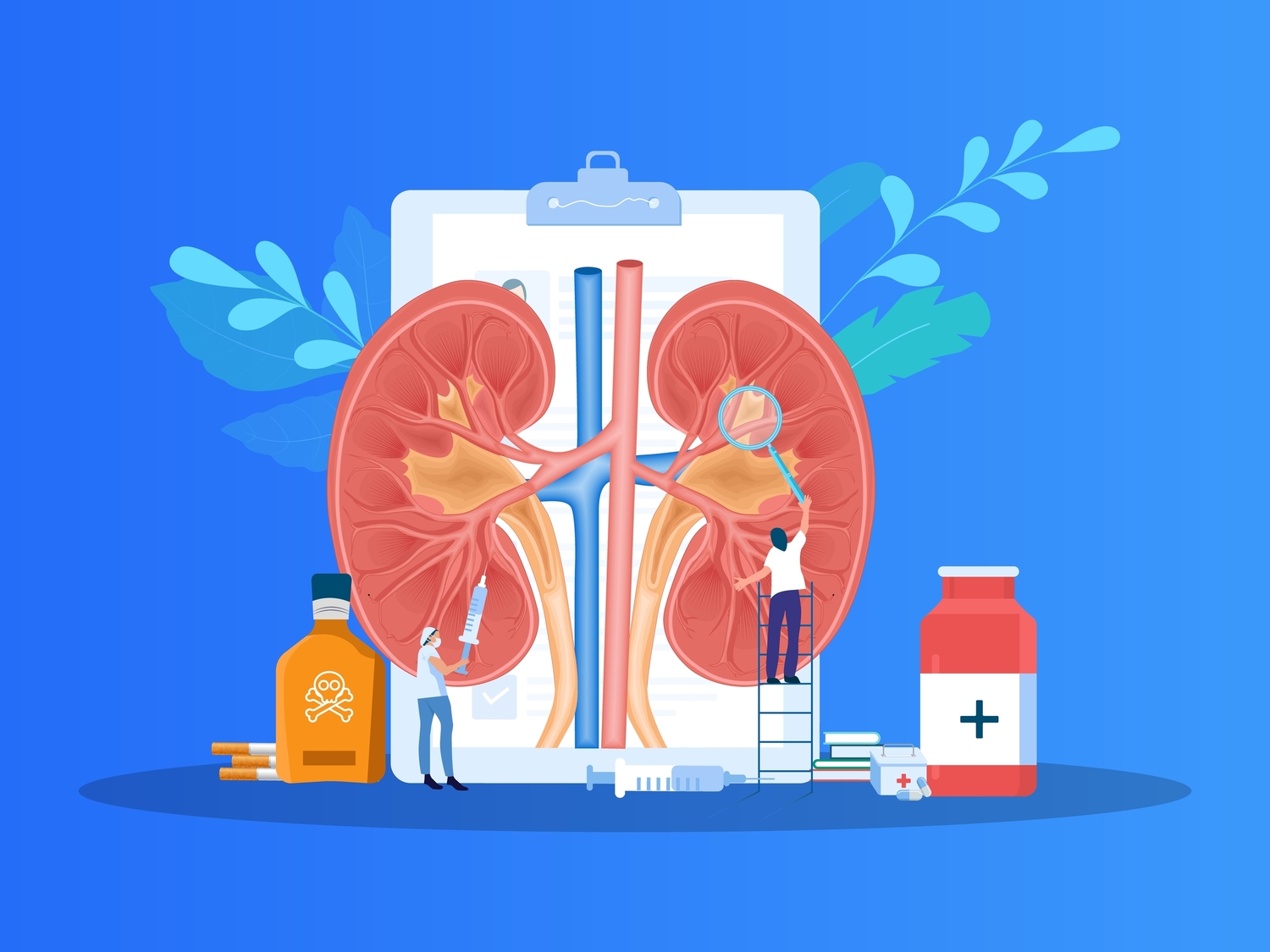Signs and Early Symptoms of Kidney Impairment
Early detection of kidney impairment is vital for effective management. Recognizing symptoms like fatigue, urination changes, swelling, and skin issues can prevent progression to kidney failure. Regular medical evaluations and lifestyle adjustments are essential to maintain kidney health and avoid invasive treatments.

Signs and Early Symptoms of Kidney Impairment
The gradual decline of kidney function, known as chronic kidney disease (CKD), often results from conditions like hypertension and diabetes. If untreated, CKD progresses, causing toxin buildup and fluid imbalance. Although there's no cure, early diagnosis allows for management strategies to slow progression. Recognizing initial symptoms is crucial to prevent kidney failure, which may require dialysis or transplantation. Symptoms such as fatigue, changes in urination, sleep issues, itching, swelling, muscle cramps, nausea, breathlessness, and cognitive disturbances indicate possible kidney issues and should prompt medical evaluation.
Fatigue and Low Energy When kidneys fail, waste accumulation can cause exhaustion and difficulty concentrating. Anemia resulting from decreased red blood cell production reduces oxygen levels, contributing to persistent tiredness.
Altered Urination Patterns Impaired kidney function may lead to increased urination, especially at night, or painful urination. Urine might appear foamy or contain blood. Such symptoms require medical assessment as they can also indicate infections or stones.
Sleep Problems Sleep disturbances, including sleep apnea, are linked to kidney health. Toxins can disrupt sleep quality, and lack of oxygen during sleep can further damage kidneys.
Skin Itching Build-up of toxins can cause itchiness, rashes, and persistent skin discomfort. Mineral imbalances may also lead to bone issues and other complications if untreated.
Swelling and Fluid Retention Water retention leading to puffiness around the eyes, face, hands, and feet is common with kidney impairment. Excess protein in urine may also contribute to facial swelling.
Muscle Cramps Electrolyte imbalances, such as disrupted sodium, calcium, or potassium levels, can cause leg cramps, indicating underlying issues.
Nausea and Gastrointestinal Problems Accumulating waste in the blood irritates the stomach, leading to nausea, vomiting, and appetite loss. Persistent symptoms can cause nutritional deficiencies if not treated.
Breathlessness and Fatigue Anemia caused by decreased erythropoietin production contributes to breathlessness. Fluid buildup further impairs breathing, making activity difficult.
Cognitive Difficulties High toxin levels impact brain functions, resulting in dizziness, confusion, and concentration issues, characteristic of uremic syndrome.
Early consultation with healthcare professionals is essential if these symptoms are observed. Adopting a healthy lifestyle, maintaining a proper diet, staying hydrated, and controlling blood pressure are key to preserving kidney health. Ignoring warning signs can lead to irreversible damage, requiring dialysis or transplantation. Regular check-ups help manage kidney conditions effectively.


